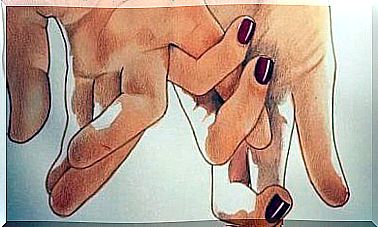Is There Any Use For: “it Could Have Been Worse”

Many of us have found ourselves in this situation. We have just lost a job, ended a relationship or been disappointed in some other way. But as soon as we open up about this with someone close, they come up with the old cliché: ” Do not worry, it could have been worse “. We often use the term because we do not know what else we can say. But is there really any benefit to using the term, whether it is with thoughts, words or deeds?
In addition to whether it is useful or not, there is plenty of evidence for its use. It is very common that we compare our situations with others and we use them as a reference. Sometimes it can be a relief to know that some people go through more difficult things than you do.
It is as if your mind is desperately looking for something to hold on to and say, “Well, after all, things are not as bad as they could have been.”
It is a strange tendency that most of us have a tendency to, and it has also been studied in psychology. We know that it is a type of adaptation strategy that is common. Still, there are some nuances in this “lifesaver” that we should all remember.

“It could have been worse, it’s not raining.”
You’re on your way home after work and your car breaks down. You call the rescue and wait. In your despair, your brain is trying to find a way to comfort you. ” Well, it could have been worse, at least it’s not raining! “And strangely enough, that thought often helps.
Another example may be during a visit to the doctor. During the meeting, he gives you the news that you have diabetes. Quite logically, his statement creates a certain fear in you. But the doctor smiles reassuringly and says, “Do not worry, it could have been much worse, there are much more serious diseases lurking out there.”
In these two examples, you can imagine yourself in two very different situations. In the first, the thought that the situation may get worse gives you relief. The second example, however, is a “trap” that we often fall into. What we do here is to underestimate the seriousness of one situation while comparing it with another.
The fact that a doctor says that there are people in more complicated and tough situations than yours does not really help. What this strategy actually achieves is to underestimate the seriousness of the person’s specific situation.
When you do this, you also risk making the victim feel guilty because he or she has found relief in the thought that others are worse off than them. We can conclude that it is not logical or ethical to use these types of comments.
“It could have been worse”, the phrase that undermines a person’s experiences
If there is one thing we humans often lack, it is knowing how to support, accompany and help other people. When you are going through difficult times, you do not normally want those around you to have the same problem or suffer the loss you have experienced. All you want is a little understanding and love.
But many people use these unwise comments and happily proclaim to people that: “It could have been worse”.
Let us imagine that you are in a car accident, but the only injury you suffer is a perceived pain in the neck. If someone then tells you that things could have been so much worse, this can create an increased anxiety in your mind that it may have worse consequences in the future. You may even be afraid to drive again.
Let’s take another example. Imagine that you have been fired from your job. You will not be comforted by the thought that you could have suffered even worse difficulties. Why? Because all these comments do is aggravate what you are experiencing right now.
They only deny your feelings and the reality you face by comparing them to something that has nothing to do with you and that can not and should not give any relief in you. You will not feel better knowing that others are worse off.

The risk of victim mentality
In a study conducted by Shelley Taylor and Joan Wood at the University of Texas, the researchers drew some interesting conclusions on this topic. There is something even more common than others who claim that things could have been worse . The most common is that you actually say this to yourself.
The conclusion they drew from their research was that it does not always help us to use this type of strategy for psychological adaptation to difficulties. Also, if what you are going through is serious, it can often make things worse.
To understand this a little better, we will give another example. Let’s imagine a teenager who has been bullied throughout high school.
This young man comforts himself with the thought that things could have been worse. For example, he was never physically abused. He may find solace in the fact that no one found out what happened to him, neither his parents nor his teachers. However, this does not create a real advantage. He thinks he was not affected by the worst possible outcome, but the reality of the situation is different.
To undermine suffering
By using this unhelpful strategy, he undermines what he has actually been through. He does not confront, and does not try to deal with, his suffering because he has underestimated it. He has used a defense mechanism to try to help himself, but all he has done is avoid trauma. As you can see, he has actually aggravated the situation and has not resolved it in the slightest.
Thus, we can, as a conclusion, dare to say that the comment “it could have been worse” in a few specific circumstances can be really useful. But let us not ignore or downplay people’s suffering, no matter how insignificant it may seem to you.
It is important to pay attention to and respect every situation that different people go through. The truth of the matter is that if you do not understand that the situation the other person is experiencing can create real suffering and anxiety in them, then it will be very difficult for you to help them.









